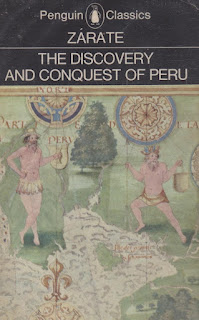
'கபாலி'யில் ரஞ்சித் இந்த புத்தகத்தை ரஜினியின் கையில் கொடுத்திருப்பார். அப்போது என் reading listல் சேர்ந்த புத்தகம் இது. இந்த புத்தக கண்காட்சியில் வாங்கினேன்.
இட ஒதுக்கீட்டுக்கு எதிரான ஒரு மனநிலையை நடுத்தர வர்க்கம் ஒரு fashion ஆக கொண்டிருக்கும் இந்நாட்களில் இது ஒரு தேவையான புத்தகம். ஒரு குடும்பம் பொருளாதார கீழ் நிலையில் இருந்து ஓரளவு மேலே வர என்ன வேண்டி இருக்கிறது என்பது இந்த புத்தகத்தின் ஒரு பாடம்.
தீண்டத்தகாத சாதியை சேர்ந்த பாலய்யாவின் தந்தை ஒரு வேகத்தில் தன் கிராமத்தில் இருந்து வெளியேறி அன்றைய பிரிட்டிஷ் ரயில் சேவையில் சேர்கிறார். பாலையாவை சிறிது படிக்க வைக்கிறார். பாலையாவும் ரயில்வேயில் சேர்கிறார். படிப்பின் அவசியத்தை அவருக்கு உணர்த்துவதாக இது தோன்றுகிறது. எனவே தனது மகன்கள்/மகள்கள் என அனைவரையும் படிக்க வைக்க முடிவு செய்கிறார். 1940களின் பிற்பகுதியில் இருந்து 1960களின் இறுதி வரையிலான இந்த போராட்டமே இந்த புத்தகம். அவ்வாறு படிக்க வைக்கப்பட்ட சத்திய நாராயணவே இதன் ஆசிரியர்.
கிராமங்களின் சாதி கட்டமைப்பு பெரும்பாலும் இப்போது உடைக்க பட்டு விட்டதாக நாம் எண்ணிக் கொண்டிருக்கிறோம். ஆனால் முன்னிலும் அதிகமாக இன்று சாதி படித்தவர்களின் இடையே ஒரு பெரிய தீமையாக வளர்ந்து நிற்கிறது. இன்றைய கீழ் நிலை சாதிகளின் போராட்டம் பாலையா போன்றவர்களின் போராட்டமாக மட்டும் அல்லாது ஒரு சமூகத்தின் போராட்டமாக மாறி விட்டிருக்கிறது.
இந்த புத்தகத்தின் சாரமே , கல்வி மட்டுமே சாதி கட்டுமானத்தை உடைக்க வல்லது என்பது மட்டுமே. அந்த ஒரு காரணத்தினினாலே மட்டுமே கல்வி , முதலில் , இடைநிலை சாதிகளுக்கும் , பின்னர் , சூத்திர, தீண்டத்தகாத சாதிகளுக்கும் கிடைப்பதில் எவ்வளவு சிக்கல் ஏற்படுத்த முடியுமோ அவ்வளவு இன்றளவும் ஏற்படுத்த படுகிறது.
பாலய்யாவின் தந்தை கிராமத்தின் கட்டை உடைத்து வெளியேறுகிறார். அதன் பின் இரண்டு தலைமுறைகள் - படிபடியாக கல்வி மூலமாக தங்கள் பொருளாதார நிலையை முன்னேற்றுகிறார்கள். ஆனால் அவர்களால் அதன் பின்னும் அந்த தீண்டத்தகாத சாதி அடையாளத்தை துறக்க இயலவில்லையே. சத்தியநாராயணா ஒரு கல்லூரியின் முதல்வரான பிறகு ஒரு துணை நூலகரால் அவமானபடுத்த படுகிறார். சாதி அவரை விடவில்லை. அவரின் பேரப் பிள்ளைகள் இன்று அமெரிக்கா குடிமக்களாக இருக்கிறார்கள். சாதி அங்கும் அவர்களை துரத்துகிறதா என்று தெரியவில்லை.
ஆக, ஒரு குடும்பம் சாதீய தளையை பிரித்து வெளி வர கிட்டத்தட்ட நான்கு தலைமுறைகள் ஆகிறது. அதுவும், கல்வி கொடுத்தே தீர வேண்டும் என்று ஒரு தந்தை உறுதியாக இருந்த ஒரே காரணத்தால். இன்றைய இடை நிலை சாதி, சூத்திர, தீண்டத்தகாத சாதிகளில் இத்தகைய அப்பாக்கள் எத்துணை பிள்ளைகளுக்கு இருக்கிறார்கள் என்பது கேள்விக்குறியே. இதனாலேயே இட ஒதுக்கீடும், சலுகைகளும் இன்றும் மிக அவசிய தேவைகளாக இருக்கின்றன.
என்னுடைய கல்வி என்பது என் அம்மாஉறுதியாக இருந்ததால் மட்டுமே சாத்தியப்பட்டது. அதுவே, என்னையும், பின் என் தம்பியையும். உழலும் பொருளாதார சிக்கல்களில் இருந்து ஓரளவிற்கு வெளிக்கொணர்ந்தது. இன்னமும் 1/2 தலைமுறைகளில் இந்த சிக்கல்கள் முழுவதுமாக தீரும் என்று சொல்லலாம். அதற்க்கு இன்னமும் இரு தலைமுறைகள் கல்வி கற்று - இதை விடாது செய்ய வேண்டும்.
ஒரு நூறு தலைமுறைகளாக இதை சாதித்து வந்திருக்கும் ஒரு கூட்டம் இன்று இந்த 3/4 தலைமுறைக்கு கொடுக்கும் சலுகைகளை எதிர்ப்பது என்னை பொறுத்த வரை அயோக்கியத்தனமானது. இதற்க்கு முட்டு கொடுக்கும் முதல்/இரண்டாம் தலைமுறை இடை சாதி பட்டதாரிகளை பார்த்து பச்சாதாபம் மட்டுமே பட முடிகிறது.
பொருளாதார நியாயம் ஒருபுறம் எனில், சாதீய அடுக்கு தரும் அவமானங்களை இன்னொரு தலைமுறை புரிந்து கொள்ளாமலே, அதை எதோ பெருமையாக பேசுவது இன்னொரு அயோக்கியத்தனம். நான் கல்லூரியில் படித்த நாட்களில் பல முறை, இடை சாதி மாணவர்கள், பட்டியல் சாதி மாணவர்களை தரக்குறைவாக பேசுவதை கேட்டிருக்கிறேன். கேரளாவில் சந்தனத்தை கோவில் பிராமணர் கையில் படாது தூக்கி எறிந்த போது உணர்ந்த அவமானம் , அங்கு கோவில்களில் எதையும் வாங்குவதை நிறுத்த வைத்தது. ஒரு மனிதனை அவனது தனிப்பட்ட குணங்களுக்கும் , மதிப்பீடுகளுக்கும் கொண்டு அளவிடாது, அவனது பிறப்பை கொண்டு அளவீடுவது எப்படிபட்ட நியாயத்தின் கீழ் வரும் என்று இன்றும் புரிந்ததில்லை.
'என் தந்தை பாலய்யா' - இது போன்ற கொஞ்சம் துணுக்குற வைக்கும் கேள்விகளை முன் வைக்கிறது. அதன் ஆசிரியர் இதை வெறும் கதையாக முன் வைக்காது , தன கோபத்தை பதிவு செய்து கொண்டே இருக்கிறார். அந்த கோபத்தையும் , அதன் தார்மீக நியாயத்தையும் நீங்கள் உணராவிடில் . இந்த புத்தகம் உங்களுக்கானதல்ல.

















